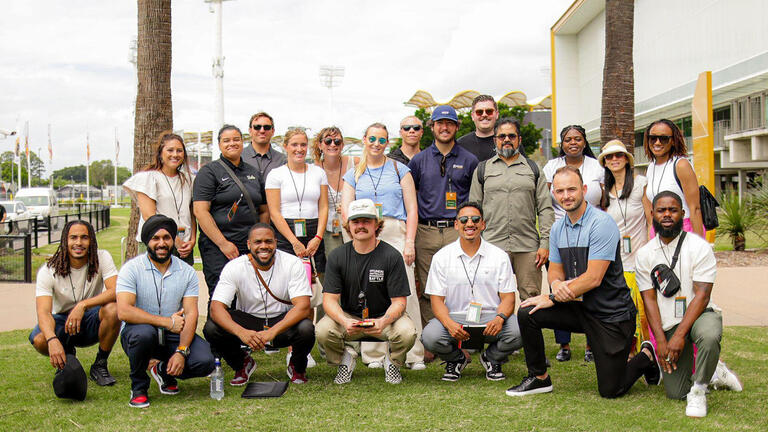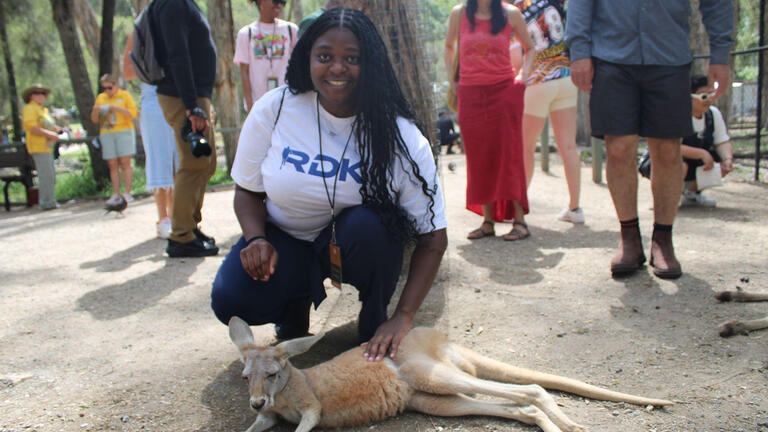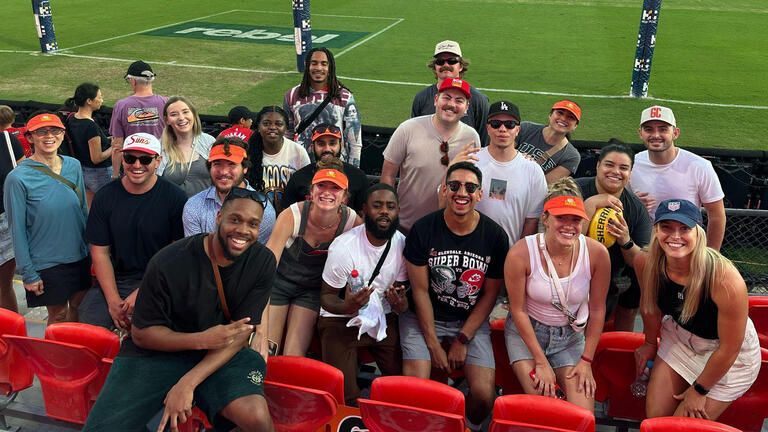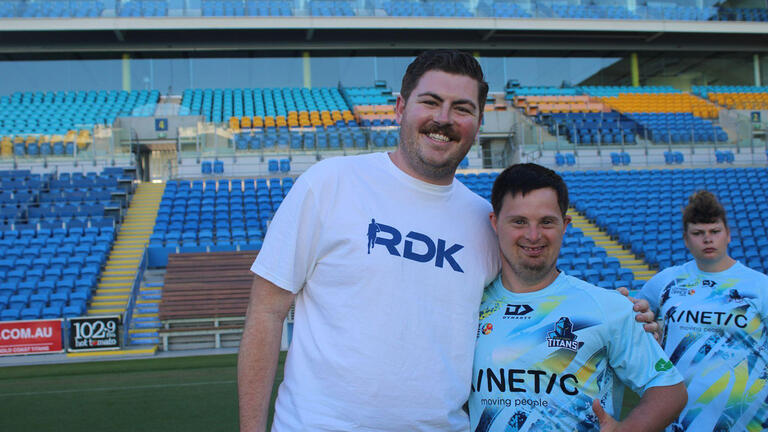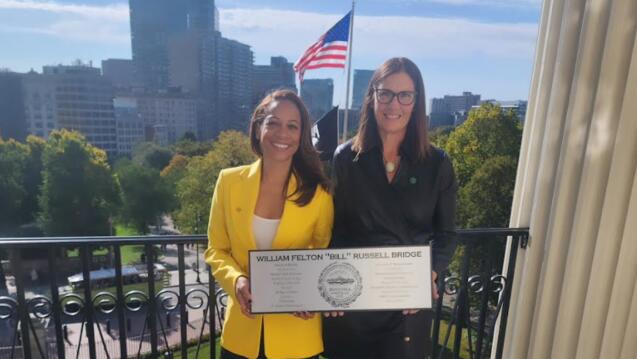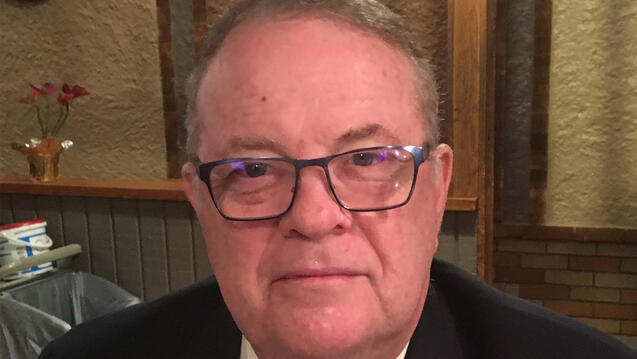Sport Management Explores Australian Sport Legacy and Future
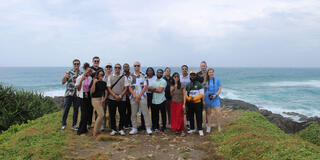
A group of Sport Management students and alumni, in partnership with RDK Sports International, ventured on a nine-day immersion course to Australia’s Gold Coast in March to gain first-hand insights into how sports have defined and continue to shape the nation.
Participants observed the influence of sports on Australian society, economy, and national identity, in the context of Australia being showcased on the world’s athletic stage over the next decade. The country will host a calendar of major world sporting events, culminating in the 2032 Brisbane Olympic Games. Brendan Larson ‘24 noted that this trip “fundamentally reshaped my understanding of sports management and its intersection with culture and society abroad.”
Sport Management students attended events like an Aussie Rules Football (AFL) match, the Australian Boardriders Battle surf competition at Burleigh Headlands, and participated in cultural activities, like a traditional Welcome to Country and smoking ceremony, to examine both sport and societal differences abroad.
They also visited elite training facilities like Surfing Australia on the Gold Coast; Ballymore Stadium, home of the Queensland Reds; the Gold Coast Aquatic Center; and the iconic Gabba Stadium, to learn how stadium infrastructure, technological innovation, and a commitment to sustainability will be implemented in the future.
Integration of local, regional, and national government and regulatory bodies within sport was evident across professional and recreational sectors. Director of Sport Brendan Keane of the Brisbane 2032 Olympic Organising Committee discussed the critical need for partnership with transportation offices, tourism, and the general public while planning for an international sporting event. Following the success of the FIFA Women’s World Cup 2023, in which the Matilda’s made a historic run, Australia saw a large boost in women’s soccer participation, which prompted a $200 million investment into addressing gender facility and pay gaps throughout Australian sport. Brisbane 2032 hopes to capitalize on and continue this success.
Efforts to strengthen the Australian sports industry include fostering innovation and commercial opportunities. Sport management students learned about the NFL’s commitment to growing American football abroad, and the significant investments that are being made in the Asia Pacific region to develop talent through the International Player Pathway program. The Gold Coast Suns, for example, have invested in female athletes and sports by closing the salary gap and established a public childcare center near their stadium in partnership with Kool Beanz Academy, a move that serves both as an investment in women's sports and a new revenue stream.
Teddy Silva ‘24 noted, “The interactions with local and business professionals have profoundly impacted my professional development. The emphasis on growing women’s sports in Australia has reinforced one of my aspirations to contribute to the advancement of women’s athletics.”
In addition to professional and global sport competition, a key takeaway from the trip was how Australian sports culture promotes physical activity for all of its citizens. Initiatives promoting physical activity and inclusivity were observed at community sports clubs like the Gold Coast Aquatic Center and the Gold Coast Titan’s Leagueability program, which creates sport opportunities for people with intellectual or physical disability. A highlight of the trip for USF students was being introduced to the technique and physicality of rugby as they participated in a Leagueability training session. Chris Hollis ‘25 stated “That is the kind of impact I'm looking to make in my community through sports and youth.”
We acknowledge the Traditional Custodians of the country, the Aboriginal and Torres Strait Islander people, and their connections to land, sea, and community. We pay respect to their Elders, past and present, and extend gratitude for them welcoming us to their lands.
